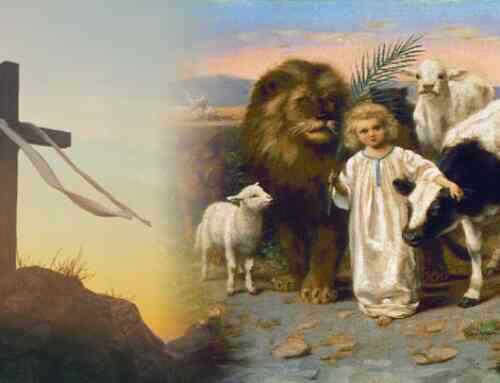“Behold, I will send you Elijah the prophet before the coming of the great and dreadful day of the LORD: and he shall turn the heart of the fathers to the children, and the heart of the children to their fathers, lest I come and smite the earth with a curse” (Malachi 4:5, 6).
This prophecy describes the work of preparing the people to receive the Messiah at both the beginning of this age and before the Second Advent of Christ.
The scribes claimed Jesus could not be the Messiah because Malachi said Elijah must first come. They expected an actual return of the Prophet Elijah, and since they had not seen him, they claimed Jesus must be an imposter.
In Matthew 11:14, Jesus identified John the Baptist as the one who prepared the hearts of the people by preaching repentance to the Jews. Unfortunately, John’s efforts affected only a few and did not reform the nation. The result, predicted by Malachi, was great trouble for the nation. “For, behold, the day cometh, it burneth as a furnace; and all the proud, and all that work wickedness, shall be stubble; and the day that cometh shall burn them up, saith Jehovah of hosts, that it shall leave them neither root nor branch” (Malachi 4:1).
The work of John the Baptist foreshadowed a larger work that would follow. The faithful followers of Jesus would preach the word of God in an attempt to spread the gospel message. But like it had for John, the message went largely unheeded. Then, in verse 11, Jesus made a profound statement: “Elijah truly shall come and restore all things.” Jesus was pointing to the future work he and his bride would accomplish in God’s kingdom.
The work of restitution is a keynote of God’s plan and was described by the Apostle Peter. “He [God] shall send Jesus Christ, which before was preached unto you: whom the heaven must receive [retain] until the times of restitution of all things, which God hath spoken by the mouth of all his holy prophets since the world began” (Acts 3:20,21).
Jesus showed that Elijah’s return had a much larger fulfillment at the second advent. The “restitution of all things” describes the work of Christ and his church in restoring the human family to the perfection lost in Adam. “As in Adam all die, even so in Christ shall all be made alive” (1 Corinthians 15:22). It is further encompassed in the promise God made long ago to Abraham.
“And in thy seed shall all the nations of the earth be blessed” (Genesis 22:18). Many of God’s precious promises will then be fulfilled.
Additional Resource:
Christian Questions Podcast
Episode #1369: “What Really Happened on the Mount of Transfiguration?”
Discussing the spectacular details of this vision and their meaning
CQ Rewind Show Notes











